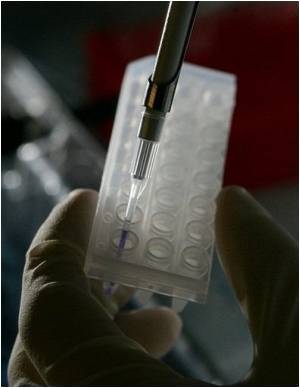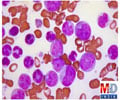
"The American Society of Hematology meeting is where the most important advances in therapies for difficult-to-treat blood-related cancers are announced," said Andre Goy, M.D., M.S., Chairman and Director, Chief of Lymphoma, and Director, Clinical and Translational Cancer Research, John Theurer Cancer Center. "Our extensive involvement in the ASH meeting is indicative of the major role we play in cancer research not just here in the U.S., but around the world."
ASH is the world's largest professional society concerned with the causes and treatment of blood disorders. More than half of the John Theurer Cancer Center presentations showcased at the ASH Annual Meeting had been considered exceptionally significant and were presented orally, including Phase I and Phase II studies, multi-center, international trials in collaboration with leading cancer institutions.
"We are proud to make such a significant contribution to advancing the treatment of hematologic cancers, and to lead or participate in so many global clinical studies alongside leading cancer institutions such as the National Cancer Institute, Mayo Clinic, MD Anderson and Dana-Farber," said Andrew L. Pecora, M.D., F.A.C.P., C.P.E., Chief Innovations Officer and Professor and Vice President of Cancer Services, John Theurer Cancer Center. "We are especially happy that our leadership in cancer research translates into early access to promising treatments for our patients, and major advances in care for all who have cancer."
Division, John Theurer Cancer Center and colleagues from other cancer centers analyzed data from the Center for International Blood and Marrow Transplant Research in order to compare outcomes for the two procedures for patients with multiple myeloma who relapsed after an initial AHCT. Data from 137 autologous transplant and 152 allogeneic transplant patients was examined.The researchers' statistical analysis revealed a higher risk of death and lower survival rates for alloHCT patients. These patients were also at a higher risk for treatment-related mortality. The authors conclude the data demonstrates that the value of alloHCT for multiple myeloma patients after prior relapse from AHCT is limited.
Source-Eurekalert














